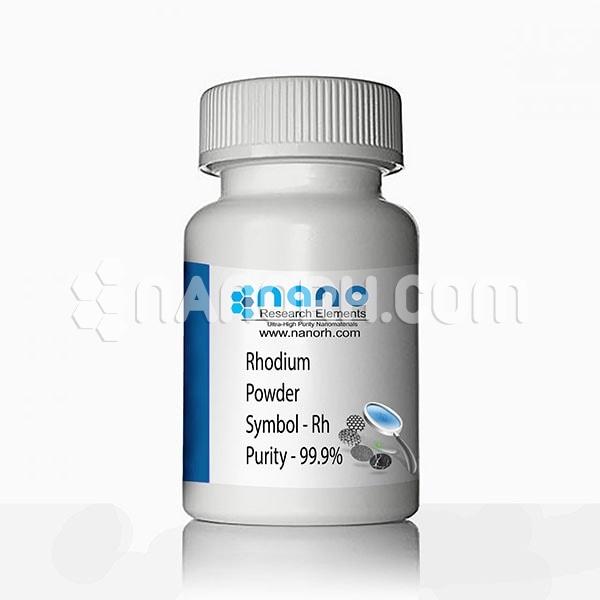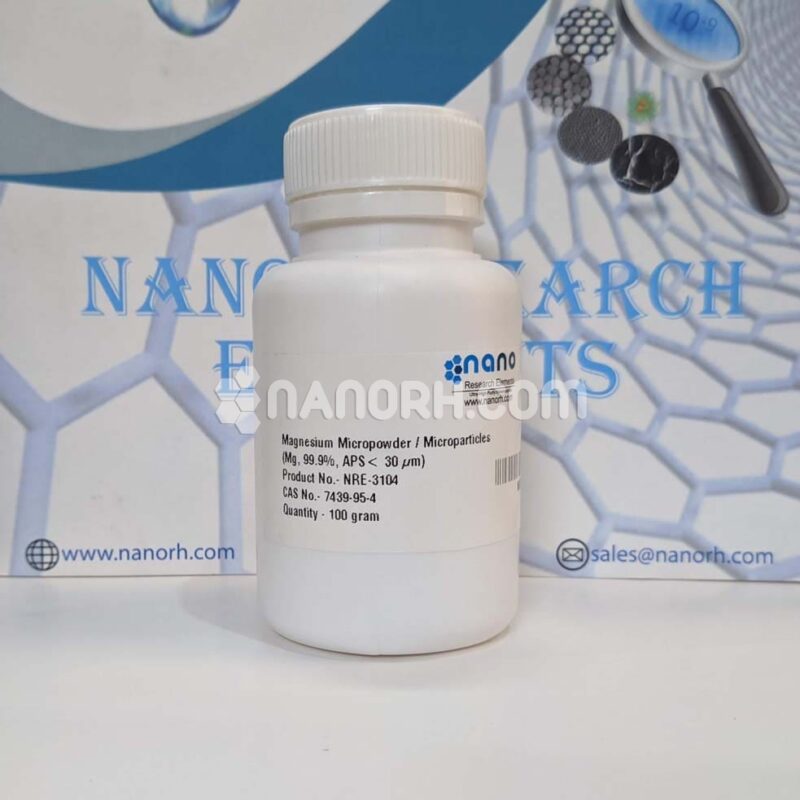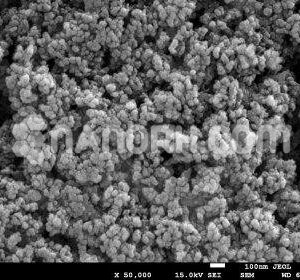| Rhodium Powder | |
| Product No | NRE-8039 |
| CAS No. | 7440-16-6 |
| Formula | Rh |
| Molecular Weight | 102.91 g/mol |
| APS | <40 µm (can be customized) |
| Purity | 99.9% |
| Color | Gray |
| Density | 12.41g/cm3 |
| Melting Point | 1964 °C |
| Boiling Point | 3695 °C |
Rhodium Powder
Rhodium is a rare, silvery-white, hard, and chemically inert transition metal that belongs to the platinum group of elements. Due to its exceptional properties, rhodium finds applications in various fields. One of its most common uses is in the manufacturing of catalytic converters in vehicles to reduce harmful emissions. Here are some other important applications of rhodium powder:
Jewelry: Rhodium is commonly used as a plating material for jewelry, particularly white gold, to enhance its appearance and durability. It provides a reflective surface and helps prevent scratching and tarnishing.
Chemical and industrial processes: Rhodium is employed as a catalyst in various chemical reactions, such as in the production of acetic acid, where it helps in the catalytic carbonylation of methanol.
Electrical components: Rhodium is utilized in electrical contacts due to its resistance to corrosion and its ability to withstand high temperatures. It is used in applications such as connectors and switches.
Research and development: Rhodium compounds are utilized in various research applications, especially in the field of organic synthesis and catalysis, due to their unique properties and reactivity.
Biomedical applications: Rhodium-based compounds are being studied for their potential in medicinal chemistry, particularly in the development of new anticancer agents and other pharmaceutical applications.
Mirrors and optical instruments: Rhodium is used in the production of high-quality mirrors and optical instruments due to its high reflectance and durability.
Aerospace industry: Rhodium finds use in the aerospace industry, particularly in the production of turbine engines and various components where high-temperature stability and resistance to corrosion are crucial.
Nuclear reactors: Rhodium is used in nuclear reactors as an alloying agent for its ability to absorb neutrons. It is used in control rods for nuclear fission reactions.



